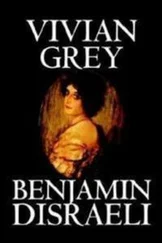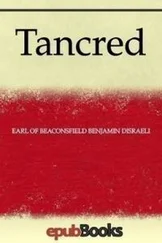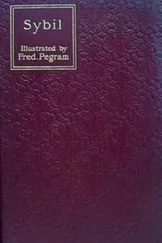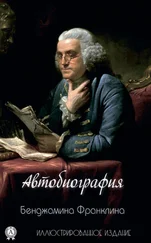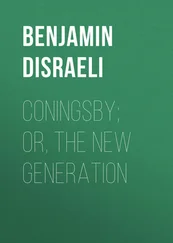Бенджамин Дизраэли - Coningsby
Здесь есть возможность читать онлайн «Бенджамин Дизраэли - Coningsby» весь текст электронной книги совершенно бесплатно (целиком полную версию без сокращений). В некоторых случаях можно слушать аудио, скачать через торрент в формате fb2 и присутствует краткое содержание. Год выпуска: 2014, Издательство: epubBooks Classics, Жанр: Классическая проза, на английском языке. Описание произведения, (предисловие) а так же отзывы посетителей доступны на портале библиотеки ЛибКат.
- Название:Coningsby
- Автор:
- Издательство:epubBooks Classics
- Жанр:
- Год:2014
- ISBN:нет данных
- Рейтинг книги:4 / 5. Голосов: 1
-
Избранное:Добавить в избранное
- Отзывы:
-
Ваша оценка:
- 80
- 1
- 2
- 3
- 4
- 5
Coningsby: краткое содержание, описание и аннотация
Предлагаем к чтению аннотацию, описание, краткое содержание или предисловие (зависит от того, что написал сам автор книги «Coningsby»). Если вы не нашли необходимую информацию о книге — напишите в комментариях, мы постараемся отыскать её.
Coningsby — читать онлайн бесплатно полную книгу (весь текст) целиком
Ниже представлен текст книги, разбитый по страницам. Система сохранения места последней прочитанной страницы, позволяет с удобством читать онлайн бесплатно книгу «Coningsby», без необходимости каждый раз заново искать на чём Вы остановились. Поставьте закладку, и сможете в любой момент перейти на страницу, на которой закончили чтение.
Интервал:
Закладка:
Although he had not seen her since their hurried yet sweet reconciliation in the gardens of Lady Everingham, Coningsby was never long without indirect intelligence of the incidents of her life; and the correspondence between Lady Everingham and Henry Sydney, while they were at the moors, had apprised him that Lord Beaumanoir's suit had terminated unsuccessfully almost immediately after his brother had quitted London.
It was late in the evening when Coningsby arrived in town: he called at once on Lord Eskdale, who was one of Lord Monmouth's executors; and he persuaded Coningsby, whom he saw depressed, to dine with him alone.
'You should not be seen at a club,' said the good–natured peer; 'and I remember myself in old days what was the wealth of an Albanian larder.'
Lord Eskdale, at dinner, talked frankly of the disposition of Lord Monmouth's property. He spoke as a matter of course that Coningsby was his grandfather's principal heir.
'I don't know whether you will be happier with a large fortune?' said Lord Eskdale. 'It is a troublesome thing: nobody is satisfied with what you do with it; very often not yourself. To maintain an equable expenditure; not to spend too much on one thing, too little on another, is an art. There must be a harmony, a keeping, in disbursement, which very few men have. Great wealth wearies. The thing to have is about ten thousand a year, and the world to think you have only five. There is some enjoyment then; one is let alone. But the instant you have a large fortune, duties commence. And then impudent fellows borrow your money; and if you ask them for it again, they go about town saying you are a screw.'
Lord Monmouth had died suddenly at his Richmond villa, which latterly he never quitted, at a little supper, with no persons near him but those who were amusing. He suddenly found he could not lift his glass to his lips, and being extremely polite, waited a few minutes before he asked Clotilde, who was singing a sparkling drinking–song, to do him that service. When, in accordance with his request, she reached him, it was too late. The ladies shrieked, being frightened: at first they were in despair, but, after reflection, they evinced some intention of plundering the house. Villebecque, who was absent at the moment, arrived in time; and everybody became orderly and broken–hearted.
The body had been removed to Monmouth House, where it had been embalmed and laid in state. The funeral was not numerously attended. There was nobody in town; some distinguished connections, however, came up from the country, though it was a period inconvenient for such movements. After the funeral, the will was to be read in the principal saloon of Monmouth House, one of those gorgeous apartments that had excited the boyish wonder of Coningsby on his first visit to that paternal roof, and now hung in black, adorned with the escutcheon of the deceased peer.
The testamentary dispositions of the late lord were still unknown, though the names of his executors had been announced by his family solicitor, in whose custody the will and codicils had always remained. The executors under the will were Lord Eskdale, Mr. Ormsby, and Mr. Rigby. By a subsequent appointment Sidonia had been added. All these individuals were now present. Coningsby, who had been chief mourner, stood on the right hand of the solicitor, who sat at the end of a long table, round which, in groups, were ranged all who had attended the funeral, including several of the superior members of the household, among them M. Villebecque.
The solicitor rose and explained that though Lord Monmouth had been in the habit of very frequently adding codicils to his will, the original will, however changed or modified, had never been revoked; it was therefore necessary to commence by reading that instrument. So saying, he sat down, and breaking the seals of a large packet, he produced the will of Philip Augustus, Marquess of Monmouth, which had been retained in his custody since its execution.
By this will, of the date of 1829, the sum of 10,000 l. was left to Coningsby, then unknown to his grandfather; the same sum to Mr. Rigby. There was a great number of legacies, none of superior amount, most of them of less: these were chiefly left to old male companions, and women in various countries. There was an almost inconceivable number of small annuities to faithful servants, decayed actors, and obscure foreigners. The residue of his personal estate was left to four gentlemen, three of whom had quitted this world before the legator; the bequests, therefore, had lapsed. The fourth residuary legatee, in whom, according to the terms of the will, all would have consequently centred, was Mr. Rigby.
There followed several codicils which did not materially affect the previous disposition; one of them leaving a legacy of 20,000 l. to the Princess Colonna; until they arrived at the latter part of the year 1832, when a codicil increased the 10,000 l. left under the will to Coningsby to 50,000 l. .
After Coningsby's visit to the Castle in 1836 a very important change occurred in the disposition of Lord Monmouth's estate. The legacy of 50,000 l. in his favour was revoked, and the same sum left to the Princess Lucretia. A similar amount was bequeathed to Mr. Rigby; and Coningsby was left sole residuary legatee.
The marriage led to a considerable modification. An estate of about nine thousand a year, which Lord Monmouth had himself purchased, and was therefore in his own disposition, was left to Coningsby. The legacy to Mr. Rigby was reduced to 20,000 l. , and the whole of his residue left to his issue by Lady Monmouth. In case he died without issue, the estate bequeathed to Coningsby to be taken into account, and the residue then to be divided equally between Lady Monmouth and his grandson. It was under this instrument that Sidonia had been appointed an executor and to whom Lord Monmouth left, among others, the celebrated picture of the Holy Family by Murillo, as his friend had often admired it. To Lord Eskdale he left all his female miniatures, and to Mr. Ormsby his rare and splendid collection of French novels, and all his wines, except his Tokay, which he left, with his library, to Sir Robert Peel; though this legacy was afterwards revoked, in consequence of Sir Robert's conduct about the Irish corporations.
The solicitor paused and begged permission to send for a glass of water. While this was arranging there was a murmur at the lower part of the room, but little disposition to conversation among those in the vicinity of the lawyer. Coningsby was silent, his brow a little knit. Mr. Rigby was pale and restless, but said nothing. Mr. Ormsby took a pinch of snuff, and offered his box to Lord Eskdale, who was next to him. They exchanged glances, and made some observation about the weather. Sidonia stood apart, with his arms folded. He had not, of course attended the funeral, nor had he as yet exchanged any recognition with Coningsby.
'Now, gentlemen,' said the solicitor, 'if you please, I will proceed.'
They came to the year 1839, the year Coningsby was at Hellingsley. This appeared to be a critical period in the fortunes of Lady Monmouth; while Coningsby's reached to the culminating point. Mr. Rigby was reduced to his original legacy under the will of 10,000 l. ; a sum of equal amount was bequeathed to Armand Villebecque, in acknowledgment of faithful services; all the dispositions in favour of Lady Monmouth were revoked, and she was limited to her moderate jointure of 3,000 l. per annum, under the marriage settlement; while everything, without reserve, was left absolutely to Coningsby.
A subsequent codicil determined that the 10,000 l. left to Mr. Rigby should be equally divided between him and Lucian Gay; but as some compensation Lord Monmouth left to the Right Honourable Nicholas Rigby the bust of that gentleman, which he had himself presented to his Lordship, and which, at his desire, had been placed in the vestibule at Coningsby Castle, from the amiable motive that after Lord Monmouth's decease Mr. Rigby might wish, perhaps, to present it to some other friend.
Читать дальшеИнтервал:
Закладка:
Похожие книги на «Coningsby»
Представляем Вашему вниманию похожие книги на «Coningsby» списком для выбора. Мы отобрали схожую по названию и смыслу литературу в надежде предоставить читателям больше вариантов отыскать новые, интересные, ещё непрочитанные произведения.
Обсуждение, отзывы о книге «Coningsby» и просто собственные мнения читателей. Оставьте ваши комментарии, напишите, что Вы думаете о произведении, его смысле или главных героях. Укажите что конкретно понравилось, а что нет, и почему Вы так считаете.
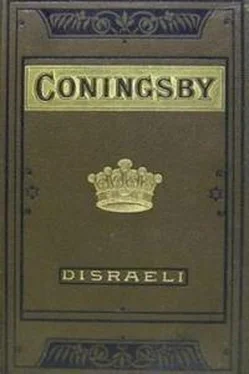
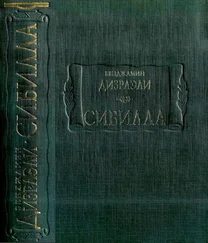
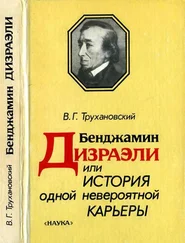
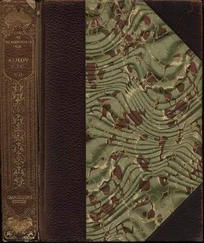

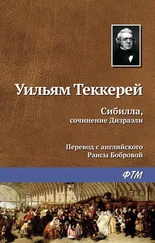
![Мелани Бенджамин - Госпожа отеля «Ритц» [litres]](/books/384861/melani-bendzhamin-gospozha-otelya-ritc-litres-thumb.webp)
